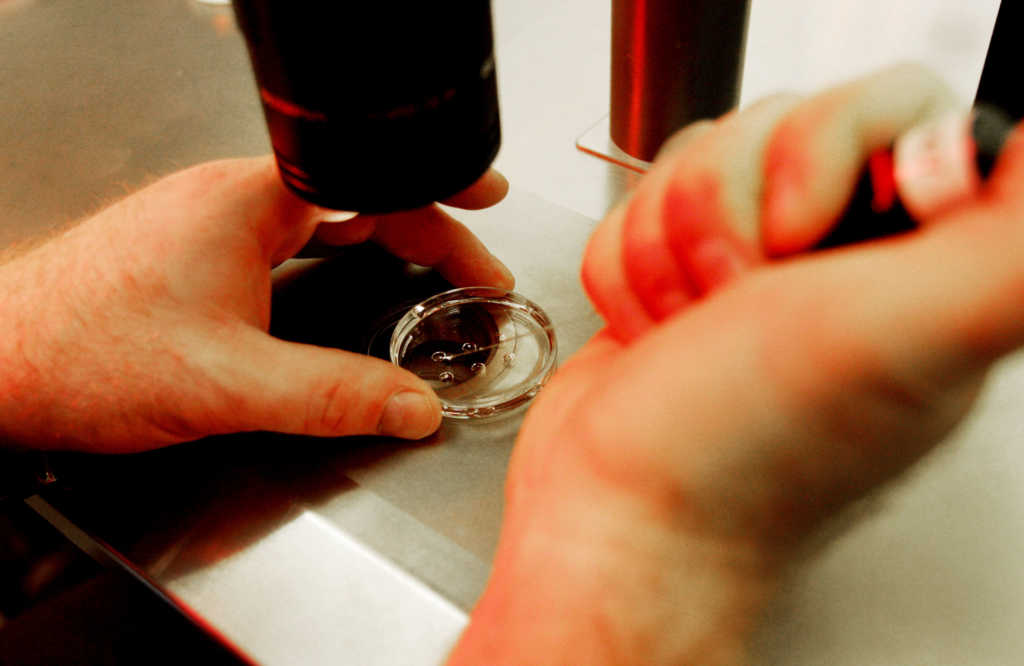A newly introduced law in Arizona will ensure that any frozen embryos which are being fought over as part of a divorce settlement must go to the parent that intends to help them “develop to birth.” This is against the trend of many state laws that regularly allow the mass destruction of embryos when it comes to contestation in divorce cases.
What Should Christians Make of The Freezing and Adoption of Human Embryos?
“Most people believe that frozen embryos should have a chance at life,” state Sen. Nancy Barto, a Phoenix Republican, said when introducing Senate Bill 1393. Many believe that the legislation could dramatically rekindle the ethical debate over when life truly begins. Already, many conservatives believe that human embryos are far more than mere tissue that can be destroyed at their owner’s wishes. Indeed, a vast number of evangelical Christians assert that human embryos are, in fact, little lives that should be endowed with the same inalienable human rights that we all enjoy.
The pro-life, non-profit law firm The Thomas More Society is urging judges to consider embryos as “children” and is lobbying courts to make decisions based on the best interest of these living beings. The society argues that those who create embryos for future IVF treatment “voluntarily exercise procreational rights” and that the resulting embryos “cannot be legally terminated at the whim of others.”
However, those in favor of limited abortion restrictions are concerned that the new law is a step toward outlawing fetul termination in its entirety. The reasoning is simple: if it is illegal to destruct a frozen embryo held in a lab, how could it possibly be legal to terminate a developing fetus that is growing in utero? It would, by the moral compass of most individuals, appear more heinous to kill a baby that has developed beyond the embryonic stage than to discard a frozen embryo. You can understand why the pro-abortion side is concerned – their so-called “rights” would be under risk of being dramatically curtailed.
“The new law is in fact an end around aimed at establishing the ‘personhood’ of unborn embryos,” said Rich Vaughn, founder of the International Fertility Law Group, as reported by Portland Press Herald. He argued that the called the new legislation is “flawed” and noted that it could have disastrous consequences for reproductive freedom.
Judges have been ruling in many different directions on cases of embryonic custody, and thus many believe that the issue will go all the way to the Supreme Court in order to determine judicial clarity.
In Arizona, this latest law was sparked by a case in which a judge ruled against a woman who sought to implant her embryos following a recent divorce. Ruby Torres and John Joseph Terrell created seven embryos together after Ruby was diagnosed with an aggressive form of breast cancer and was subject to a brutal regime of chemotherapy treatment. A few years later, Torres found out that her husband was having an affair. But before the couple could finalize their divorce, the embryo matter had to be settled. Despite her valid arguments, Terrell was adamant that he did not want children to be developed using the embryos he helped create.
Maricopa County Superior Court Judge Ronee Korbin Steiner ruled that the embryos were “not children” and thus the state’s child custody laws could not be applied in the case.
“I’ve researched the heck out of it,” the judge explained in his ruling, “They are not people, but they are special because they’re somewhere between a bunch of cells and the potential of being a person, so I do respect it.”
Despite Torres offering to take full responsibility, financial or otherwise, for her future children, the judge argued that it was not fair to force Terrell to have kids. Torres pleaded one final offer: she suggested that she could pay her ex-husband for use of the embryos, offering to sign over all her retirement savings. But Terrell did not want to negotiate: he was insistent that the potential financial burden of having his own biological children would weigh heavily upon him. “It’s like a ticking time bomb,” he said in court, because of “child support or that child when coming of age coming for me.”
So, the judge ruled that Torres did not have any right to use the embryos against her ex-husband’s wishes. Bizarrely, however, Steiner ruled that the embryos could be put up for adoption. So, in a case that initiated a change in the law, the courts ruled that Torres was not permitted to use her own embryos in a bid to get become a mother, and yet a stranger may someday be allowed to get pregnant with her baby.
Torres has appealed the controversial decision and is the latest ruling is expected any day now.
Using the case as a catalyst for the new bill, Sen. Barto lamented that “there will be children out there that Ruby will never be able to meet or care for” and that the children “will never be able to know their genetic history.”
The new bill passed speedily through the Arizona legislature and was signed into law on April 3.



